Consultant specializing in web-based applications like content management, e-commerce, and online training systems. Robert Peake also taught “UNIX For Programmers” at the University of California, Berkeley. These days he is a freelance web designer, programmer, and web technology consultant.
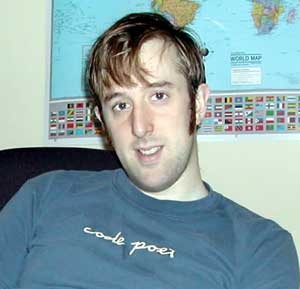

Hello Robert, how are you? Let´s talk about you a little first, please: Where are you from? Where do you live?
I was born and raised in the small desert farming town of El Centro, California, on the border of Mexico. My friends and I used to joke that it was “el centro” (the center) of nowhere, since there was very little to do there besides play with computers and get in trouble. From there I went to Berkeley.
At first I thought I would work with the Center For New Music And Audio Technology (CNMAT) at Berkeley, but my music skills were not good enough at the time. I started working for the self-paced computer science center, a unique program designed to teach new programming languages to student programmers. I learned and taught a variety of languages. “Learning how to learn” came very naturally to me, and I enjoyed the challenge of finding new ways to teach computer science concepts to students. I ended up earning my degree in poetry, not programming, since I found out that I could further my education in computer science through books and practical experience – which I am still doing all the time. The opportunity at that time to talk about great literature with great professors, however, was priceless.
After graduation, I moved to Los Angeles, and worked my way up to a position managing an Information Technology department before deciding to start my own company. I just got back from a honeymoon spent traveling the California coast, and it was inspiring to revisit San Francisco and Berkeley, where many of my first ideas about computers and creativity first started to take root. Some of these ideas are still available on my web site.
When did you begin to use mac computers? Which macs have you used? Which apple products do you actually use?
Growing up, my father was the principal (director) of a local school, so I had access to the computers at his school. The first Macintosh I used was the 512K Enhanced, with 512K of RAM and a 3.5″ floppy drive (no hard drive). From there I got my hands on just about every Mac that followed – from the SE to the Performa, on up to my first Mac laptop, a Powerbook 5300 – which I took with me to Berkeley.


Robert de niño con un apple IIe
There was a brief period when I was managing IT that I was administrating an almost entirely Windows-based organization. I couldn’t stand it. Coming from a UNIX background into an organization running an IIS web server that had to be rebooted four times a week was pathetic. We soon replaced it with a Linux solution that has been running reliably for years.
Part of my decision to start my own company was the opportunity to run the company on the systems I know and love – which means Macintosh. I do most of my best work these days on a 15″ Powerbook G4. I keep it on a stand at eye level with an external keyboard and wireless mouse, so I can keep good posture while typing away at 80-100 words per minute.
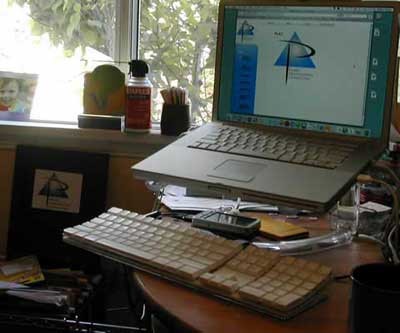

I use a wide variety of Apple and non-Apple products. For design work, I mostly use Macromedia’s suite of tools (Dreamweaver, Fireworks, and Flash). For coding, I use BBEdit and Dreamweaver. One of my favorite Apple products is actually Safari. To me, it is even better than Mozilla’s Firefox (the open source alternative) because it “feels” like it belongs on a Mac desktop.
But to be honest, my favorite Mac tools don’t belong to Apple. They belong to the open source community. I use vi to edit documents when I need to make lots of substitutions, as well as grep, sed, awk, and perl to match and replace complex patterns. The rich set of UNIX tools available for OS X make my job easier and give me a competitive advantage when I am writing code by the hour.
I think a lot of Mac users still don’t realize how easy it is to get UNIX-based software on their Mac. Go to:http://fink.sourceforge.net/ and get a copy of Fink, a product that uses the Debian apt-get tool to automatically install ported versions of hundreds of UNIX software products on your Mac. You can select only the tools you need, and take advantage of a lot of hard work by a lot of smart people.
Another misconception is that UNIX tools are command-line only, but OS X comes with a built in X11 environment so you can run X-Windows based tools as well. Some of my favorites include xnmap and etheral for network management, amaya for w3c compatible web design, and openoffice for word processing.
You worked as an assistant systems administrator and on value-added-reseller applications for HP and Apple products, performed troubleshooting and software instalattion on Unix-based system..etc. Tell us about your experiences, please.
I worked for a small Internet service provider in Berkeley when DSL was first becoming available in the USA. The company wanted to provide DSL service to the local community but couldn’t because US laws would not allow the company to own the telephone cables to transmit DSL unless they were a licensed telecommunications company.
They fought against this ridiculous law, gathering considerable media attention, but eventually gave in and became a telecommunications company themselves. This was my first introduction to the politics of computing. A lot of people find the actions of big software companies like Microsoft and even smaller companies like SCO alarming, but with the continuing popularity of the Internet I think telecommunications companies need to be watched more closely than ever. Ultimately, it’s the companies that control the physical media – copper cable and fiber optics – that have the most power. And we all know power can corrupt.
Talking about mac news, what do you think about new products showed at last keynote by Jobs and about 20th anniversary celebration?
I think what Apple’s relationship with the PowerPC chip is finally paying off with the G5. I don’t think iTunes is ultimately anything more than a way to make people wake up and notice that Apple is still bold, brave and innovating in ways other companies only dream about. But with a high-powered 64-bit chip and a BSD-style operating system underneath OS X, I think Apple could do more than just startle the Windows/Intel world with the G5, I think they could actually start pulling away some market share, starting (of course) with educational and creative markets.
You are a freelance consultant specializing in web-based applications like content management,e-commerce, and online training systems too actually. Everything on mac, isn´t it? can you explain on your experiences on this area? can you show us any example?
I think the best place you can begin to get a taste of the kind of work I do is from my portfolio,
I have always considered a computer nothing more than a very powerful tool. The question for me was always, “what can I make with it?” The second question was always, “who can use what I have made?” Designing for the Internet makes sense for me, because I am creating systems for the widest possible audience.
My first ever programming project was “automated Haiku.” While only humans can create real meaning from what they read, computers can help structure information to allow humans to give different interpretations of what they see. The interpretation is the art, not what the machine produces. After generating over a thousand semi-random “haiku” using this program, I did end up with one or two poems that seemed to make sense. What was most strange was having an emotional reaction to words selected by a machine. The source code for the project is still available in a somewhat obscure language called Lisp.


After that I turned my attention to interactivity and wrote a small suite of scripts to facilitate online learning:Dialogs.
Interestingly enough, I still find myself very much involved with projects that promote education, collaboration, and the arts. One recent project is an online training system:
that is designed to have a completely customizable look and feel. If you go to the site and take a test without a pin number you will get one look-and-feel, but if you enter the code ‘1234’ you will get a totally different layout, color scheme, fonts – everything. Using templates, the possibilities are endless. It was a fun and interesting challenge.
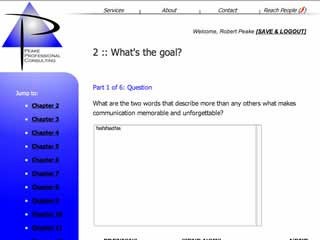

As a result, I got to thinking about how to make this process (sometimes called “skinning”) more available to developers, and founded the Simple Tags project: I believe that by actively supporting open source projects, everybody wins. Obviously, Apple understood this when they embraced BSD as the basis of OS X. In an open source model, it is technology itself that advances – not just one company. As a result, opportunities and new markets are created, jobs are created, whole industries are created. That is why I never fear sharing my good (and bad) ideas – because often if an idea gets popular, companies want to know the origin, and then they come back to me and my company to take that idea to an even greater level with proper funding. And, even if they don’t, I trust in my own creative process – there are always new ideas just around the corner.
Apple’s Worldwide Developers Conference… will you go? (anything you want to tell us about WWDC)
I must admit that I have not and probably will not make the pilgrimage to Cupertino. Most of my Apple-related news I get through a custom-designed RSS feed I built, which I track through NetNewsWire, my preferred RSS reader. While no web-based service can replace all the buzz and eye-candy of a live conference, I find that it is just so much easier to have my news brought to me in the comfort of my own home.
You also teach about programming, can you explain us a little your pedagogic activities, tutorials published and on-line classes?
I discovered early that one of the best ways to keep learning is to teach. I have gotten as much satisfaction showing someone in an online forum how to optimize their code as I have from people who appreciate open source software I have released for them to use.
I was recently given a regular column to write for International PPHP Magazine, where I will be discussing a variety of topics related to PHP – the fastest growing web-based programming language.
I have always enjoyed creating solutions for educators. This is probably because both of my parents were teachers. In fact, the way I got the job that lead to a management position was by volunteering to create a web-based interface to IRC (a chat network on the Internet) so they could conduct online classes. From there I went on to help them create a world-class live streaming infrastructure, also for educational purposes. I think I have always sought out projects where both the challenge and the reward are high. In education, the reward of seeing a student really understand, or knowing that hundreds of students all over the world appreciate being able to tune in to a webcast from their home or office – well, that makes it all worthwhile.
Robert Peake used to teach programming languages at Berkeley before he got his degree in poetry. Another activities or hobbies you develope on mac too, please? (tell us about the project “poetry o the windows” too, please)
One of my favorite hobbies I used to do on a Mac was to write MIDI music. That was what got me thinking seriously about CNMAT and, actually, about computers as well. To be able to actually start expressing music without all the formal training made me realize the computer was an extremely powerful tool for artists. Now, with garageband, it looks like Apple is making what I discovered several years ago with MIDI a reality for many, many people.
I’m wearing a shirt right now that says, “code poet.” It’s a phrase that means “expert programmer” but in my case, it has another layer of meaning because I also write and study poetry as one of my great loves. To me, there is a very similar kind of elegance and power that happens when a few lines of code become a powerful algorithm as when a few lines of poetry bring the reader a compelling experience of humanity – whether that is beauty, sadness, or hope.
One of my favorite experiences was winning a first place in the, “Poetry In The Windows” competition. This was a wonderful event sponsored by the “Arroyo Arts Collective” and funded by the NEA (National Endowment For The Arts) where a group of winning poets got their poems printed – both in English and one other language – and displayed in the shop windows of a somewhat poor but artistic neighborhood here in Los Angeles. The result was an opportunity for the poets to have their work displayed, and an opportunity for the community to read some great poetry every day on their way to the local shops. Since the poem I wrote was an homage to Neruda, and because I grew up near Mexico and therefore speak some Spanish, I had a friend of mine help me translate my poem into Spanish. The process was fascinating, because in some ways I still like the Spanish version of my poem slightly better.
All of this has nothing to do with Apple, except if you consider what they did with the Macintosh in 1984 and then again with OS X in this century a kind of poetry. I do. To me great innovation in art, in science, and in technology always shares some fundamental elements, the most important of which is that they are celebrations of the human spirit and of creativity.
Here, in Spain, we congratulate the “Book´s World-wide day and the copyright of author” on April, 23th, the date when Shakespeare´s, Cervantes and Garcilaso de la Vega perhaps died . Actually with the computers appeared the e-books on line. What do you think about this way for publishing literature?
I think copyright laws are as important now as ever. The Internet has made it possible to duplicate and distribute any piece of writing very quickly. With it, however, the perceived quality of the writing has changed.
I still seek to publish most of my poetry on paper. While I do offer some of my work online, I distribute it as a PDF because it preserves the “experience” of a book better than HTML. It changes the way you relate to a work to know you can just copy and paste it into an email to a friend.
I am also still a fan of paper because I am a fan of the experience it gives you. It’s easy to curl up in bed with a cup of tea and a good book. But a laptop? Or even a tablet PC? It’s a different experience. So I think publication in physical form will always have a place.
Copyright will always have a place as well, because intellectual property represents real work. I believe artists and engineers should be compensated fairly for their work, unless they consciously choose to give it away for free.
I think we still have to be very vigilant about censorship as well. The same barbaric mentality that was with humanity when we were tying traveling printers to their presses and setting them on fire is still with us. The same mentality that wants to restrict others’ expression because they are intimidated by it is still here. Often, that restriction comes veiled in the form of copyright. We are seeing that now with SCO’s attack on Linux. It’s a very complicated issue, but that’s what it ultimately comes down to: abusing copyright laws designed to protect people to instead try to stop innovation.
There is a lot more I could say on this subject. If I spent time, I could probably write a small book about it. But I’m getting ready for a poetry reading this evening, so I’ll need to leave it at that for now.
Any suggestion for the developers that you want to add…
I think it takes a certain amount of positive hubris (pride) to choose a Mac and stay with it. It is a conscious decision to trust your instincts, to trust your own experience instead of looking to others for validation. Most great innovation seems to come with a flash of inspiration, then a long journey of believing in yourself and your vision to bring it to life. So, I wish you and your readers the continued wisdom and courage to trust your instincts whether you are designing software, using software, or writing a poem.
Thank you for your time for faq-mac.com. Best wishes.
Thanks for interviewing me. All the best to you and your staff.
More about Robert Peake: http://www.robertpeake.com/
Robert’s Poetry: http://www.peakepoems.com/
Robert’s Web Design Company: http://www.peakepro.com/


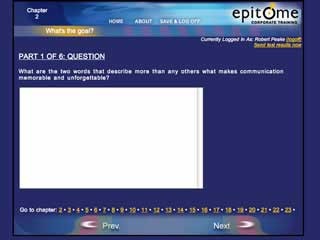
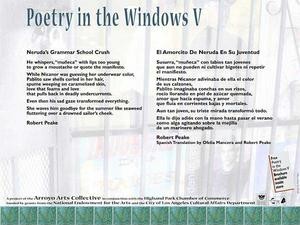





Robert Peake has updated his web site to a new blog format:
http://www.robertpeake.com/
bu sitelerde güzel sözler ve aşk sözleri bulabilir e-okul sistemi hakkında yardım alabilirsiniz.
güzel sözler
aşk sözlerİ
tv izle
e-okul sistemi
güzel sözler